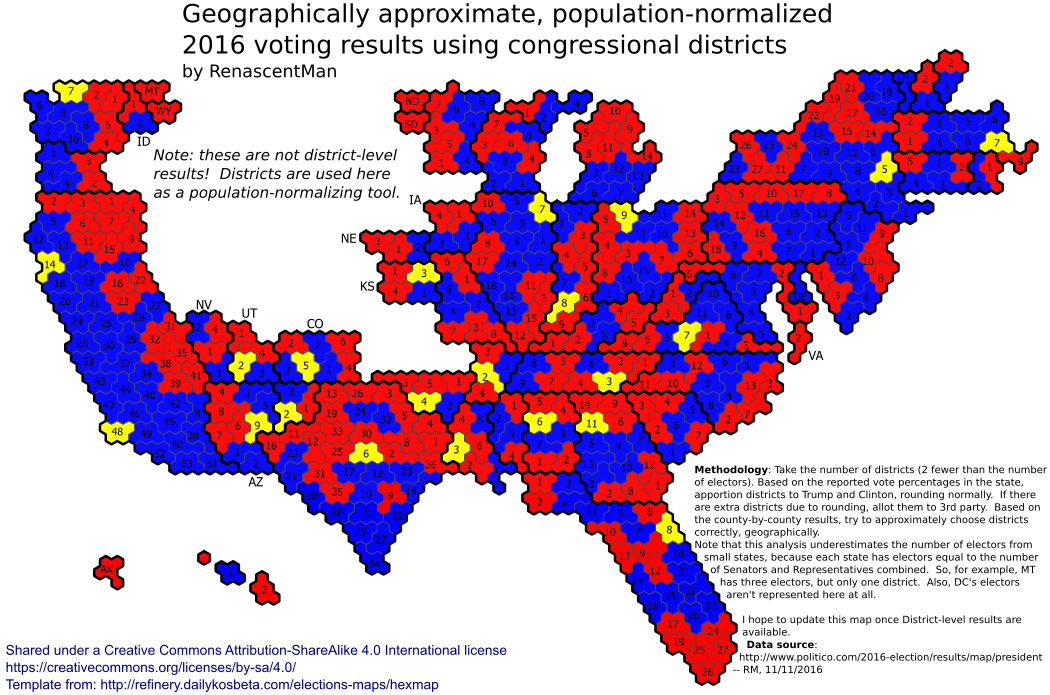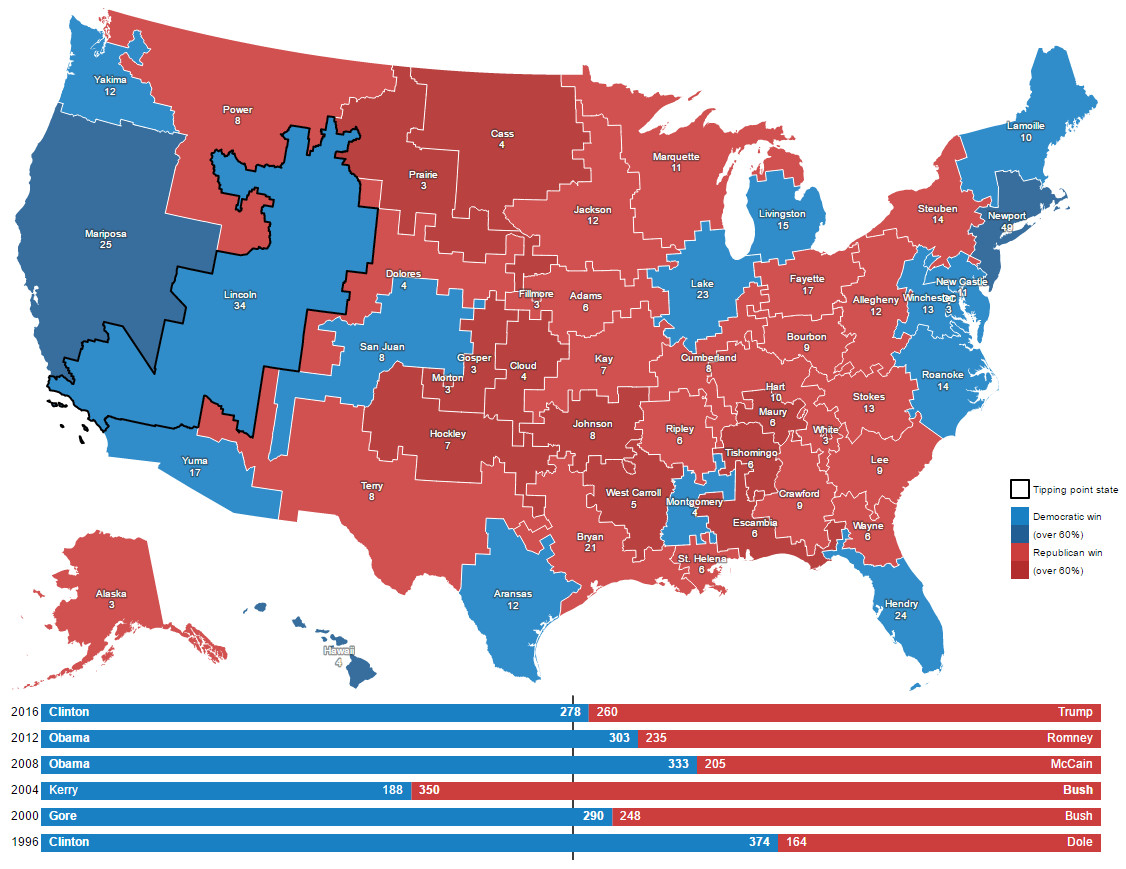Geographically approximate, population-normalized 2016 voting results using congressional districts
RenascentMan
Methodology: Take the number of districts (2 fewer than the number of electors). Based on the reported vote percentages in the state, apportion districts to Trump and Clinton, rounding normally. If there are extra districts due to rounding, allot them to 3rd party. Based on the county-by-county results, try to approximately choose districts correctly, geographically
Note that this analysis underestimates the number of electors from small states, because each state has electors equal to the number of Senators and Representatives combined. So. for example, MT has three electors, but only one district. Also, DCs electors aren’t represented here at all.
Relates posts:
– Hex map of U.S. electoral votes
– Contribution of each popular vote to electoral vote outcome, in number of persons, by U.S state
– U.S. states by victors of both primaries and the presidential election (2016)
– The Clinton Archipelago and Trump’s America
– U.S. counties in which party of top vote-getter changed between 2000 & 2016 presidential elections
– U.S. Presidential Election 2016 (Cartogram)
– How America voted in every election (1824 – 2016)
– The fewest counties in the fewest states required to win the U.S. presidential election
– If “Did Not Vote” was a candidate in 2016, it would have won by a landslide
– The America That Never Wanted Hillary To Be President
– Red Shift: Change in Democratic vote share in presidential election (2012 – 2016)
– Wisconsin election results by county (2008 – 2016)
– Where each candidate outperformed election forecasts
– U.S. Presidential Election (2016)
– How the presidential election of 2016 would look like if only millennials voted
– Electoral Map Upon Trump’s Victory
– Every United States presidential elections (1788 – 2016)
– The vote across the Mexican border









